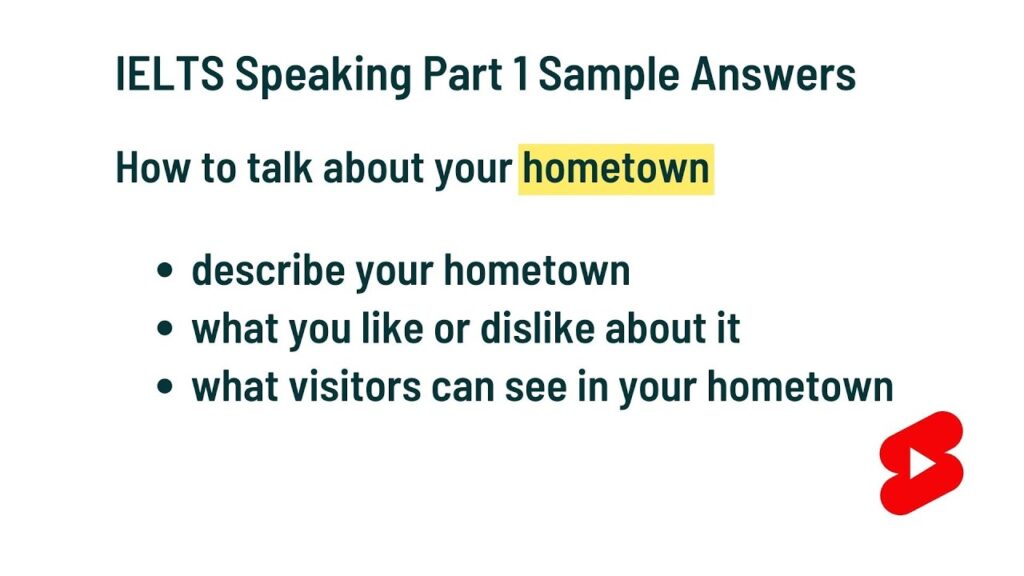Navigating social interactions and job interviews often involves answering seemingly simple questions. One such question is “Where is your hometown?” While it appears straightforward, a well-crafted response can leave a lasting impression. This article will guide you on how to answer “where is your hometown?” effectively in both professional and casual settings, showcasing your personality and connection to your roots.
We’ll explore the nuances of answering this question in job interviews and social gatherings, delve into the importance of highlighting positive aspects of your hometown, and provide tips on crafting a memorable response that leaves a positive impact.
Job Interviews
In a job interview, your hometown can be a valuable talking point to demonstrate your background, values, and experiences. It allows you to connect with the interviewer on a personal level while subtly showcasing relevant skills or traits. When answering “where is your hometown?” in an interview setting, focus on:
- Relevance: Briefly mention your hometown and its significance to your career path. Did it provide opportunities that shaped your skills or interests?
Transferable Skills: Highlight experiences gained in your hometown that are relevant to the job you’re interviewing for. For example, if you grew up in a bustling city, you might mention your experience navigating diverse environments and collaborating with people from different backgrounds.
Enthusiasm: Express genuine enthusiasm for your hometown and its positive aspects. This demonstrates your pride and connection to your roots, which can be appealing to interviewers.
Social Settings

When meeting new people in social settings, “where is your hometown?” often serves as a natural icebreaker. It allows you to initiate conversation, discover common ground, and build rapport. In these situations:
- Keep it Concise: Provide a clear and concise answer about your hometown. You can follow up with a brief anecdote or observation related to your hometown experiences.
Find Common Ground: Listen attentively for clues in their response and try to find shared interests or connections related to your hometowns. This can lead to engaging conversations and deeper connections.
Be Positive: Even if you have mixed feelings about your hometown, focus on the positive aspects when discussing it in social settings.
Answering “Where is Your Hometown?”
The key to answering “where is your hometown?” effectively lies in striking a balance between providing concise information and showcasing your personality and connection to your roots.
- Be Direct: Start with a clear statement about the city and state of your childhood residence. If you’ve moved frequently, mention the place that holds the most significance or where you lived for the longest duration.
Personalize Your Response: Add a brief anecdote or observation related to your hometown experiences. This can make your response more engaging and memorable.
Practice Your Delivery: Rehearse your answer beforehand to ensure it flows naturally and confidently.
Choosing the Right Hometown
If you’ve moved frequently, consider which place holds the most significance for you. It could be where you spent your formative years, developed close friendships, or pursued significant hobbies or interests.
Hometown Culture

Sharing insights into your hometown’s culture can add depth and richness to your response.
- Unique Traditions: Mention any unique festivals, celebrations, or traditions that define your hometown’s cultural identity.
- Local Cuisine: If your hometown is known for its culinary specialties, briefly describe a favorite dish or restaurant.
- Arts & Entertainment: Highlight any notable art scenes, music venues, or theaters that contribute to your hometown’s cultural vibrancy.
Positive Aspects
When discussing your hometown, focus on the positive aspects that shaped you and contributed to your personal growth.
- Supportive Community: Mention a sense of community or strong support networks that exist in your hometown.
- Educational Opportunities: If your hometown offered excellent schools or educational resources, acknowledge their impact on your development.
- Natural Beauty: Highlight any scenic landscapes, parks, or natural attractions that make your hometown a pleasant place to live.
Conclusion
Mastering the art of answering “where is your hometown?” can significantly enhance your interactions in both professional and social settings. By providing a clear, concise, and engaging response that highlights positive aspects and personal connections, you can leave a lasting impression and build meaningful relationships. Remember to be authentic, enthusiastic, and showcase your pride in your roots.



